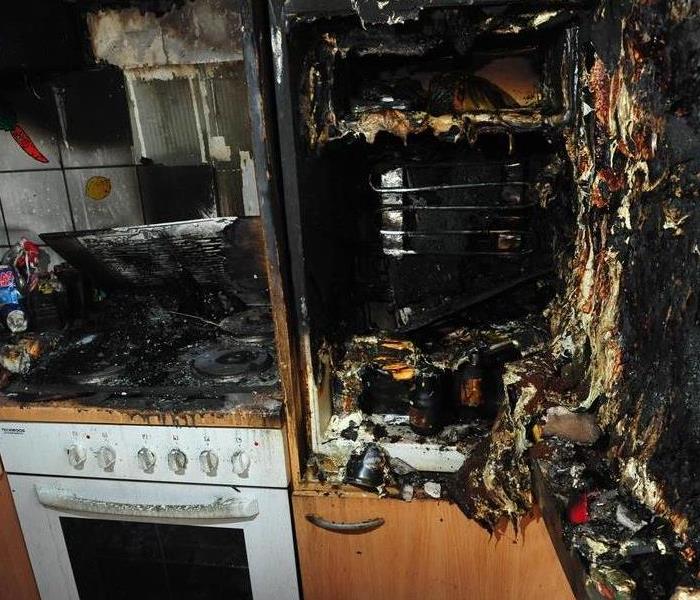Fire and Water Damage: The Unbreakable Connection
4/9/2023 (Permalink)
Fire and water damage are two of the most common causes of home damage. Fire damage can be caused by a fire in your home, or it can happen when you use a fire extinguisher on an electrical fire. Water damage can occur when there is flooding in your home, or if you leave something wet in one place for too long and mold develops.
The relationship between these two types of damage is obvious, if there's a fire in your house, it will likely cause some sort of water damage as well--but how exactly does this happen? And what does this mean for homeowners who want to avoid these types of problems altogether?
Effects of Fire Damage
When a fire breaks out, the damage can be extensive. The effects of smoke and soot on your property are just as damaging as the flames themselves. In fact, it's common for people to think that their home has been completely destroyed when they see smoke damage at first glance. Fire suppression systems are designed to prevent this type of damage from occurring by extinguishing fires before they get out of control and cause extensive structural damage or even loss of life.
However, even if you have an effective fire suppression system in place at your business or home, there will still be some residual effects from any fire that occurs on site and those effects can vary greatly depending on how long it took for firefighters to arrive on scene (or whether anyone was injured).
Effects of Water Damage
Water damage is a serious issue that can cause significant damage to your home. When water floods your home, it can cause mold growth and destroy property and belongings. If you have ever had to deal with this type of situation before, then you know how much work it takes to get everything back in order again.
Although flooding is one form of water damage that homeowners are most familiar with, there are other ways that water can infiltrate your home as well.
Causes of Leaks
Leaks from plumbing pipes or appliances (such as dishwashers) Roof leaks caused by storms or other weather events. Water seeping into cracks in foundations caused by settling over time
Fire and water damage go hand-in-hand. When a fire breaks out, it can cause extensive damage to your home or business. Not only will you have to replace any items that were destroyed by flames, but you may also need to repair structural damage caused by the fire itself.
The combination of these two disasters can lead to much higher repair costs than either one would have caused on its own. This is because there are certain steps that must be taken when repairing after both types of disasters.
Preventing Water Damage
Water damage is one of the most common causes of fire, and it's important to be aware of this when you're dealing with fire damage in your home.
Here are some tips for preventing water damage. Check for leaks around windows and doors, as well as any plumbing fixtures like sinks or toilets. If you find a leak, make sure it's fixed right away before it can cause more damage over time.
Use waterproofing products on walls that are prone to moisture (such as basements), especially if they're made out of wood or other flammable materials. These products will seal off cracks so that no water gets through them in the first place!
Consider installing sump pumps near your basement floor drains so that if there ever is an overflow from these drains due to flooding rains outside your home--or even just heavy rainstorms--the sump pumps will kick into action immediately and pump out all excess water before it has time get into any other parts of your house where things could catch fire easily like old furniture pieces lying around inside closets upstairs rooms upstairs bedrooms.





 24/7 Emergency Service
24/7 Emergency Service
